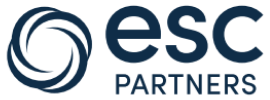Three lessons learned from pioneering Oracle CCS implementation in Brazil
Three years ago, I embarked on an ambitious journey to implement Oracle Customer Cloud Service (CCS) and Field Service (OFS) solutions in Brazil. The experience has been both challenging and rewarding—opening up a new frontier for Oracle’s utilities-specific solutions in a region with its own unique complexities. The project, which went live this week, promises to set a benchmark for future opportunities in South America. Here are some of my best teaching moments from this transformative endeavor.
CAPTION: The team walks through final testing at Ultragaz, checking on items before go live.
Lesson 1: Dive deep on those localized details. Understanding the customer's unique requirements and their specific local challenges (city, state, region, country, culture) is vital. While this advice really applies to any project you’re doing anywhere in the world, Brazilian scenarios are unlike any other: Complex tax laws, regulatory standards, and market conditions require a deep understanding and a flexible approach to implementation.
This deep dive applies to both people and software—but it doesn’t have to be done alone. It’s a real opportunity for added collaboration. When we started, the core Oracle CCS product did not cater to Brazilian-specific processes, demanding a level of customization that goes beyond the usual scope, but our ESC team and Oracle’s team really stepped up to the challenge. We additionally reached outside our organizations to legal and financial experts in the region to understand the intricacies of Brazil's taxation and regulatory systems. It really pays to do this level of research and outreach before tackling a similar project, and you should keep those collaborative ties live and active while working through the project as well. You will come upon an issue at some point, and those experts will be vital to solving that issue. Guaranteed.
Lesson 2: Don’t just use the tools at hand; innovate with them. In many cases, cultural differences in learning and working will impact the tools you should use. It certainly did here in Brazil. Conventional methodologies we had used with great success before with other projects just wouldn't suffice, so, I introduced visual collaboration tools and out-of-the-box strategies. Tools like flowcharts, visual roadmaps, and real-time dashboards facilitated cross-team communication and clarity in execution.
While we all start with the familiar and what’s worked before, with new arenas, you shouldn’t hesitate to deviate from conventional methodologies if they are not fit for your project’s specific needs—and to do so the moment they aren’t a fit. Don’t spend time trying to shove that square peg in the round hole. Introduce tools that promote visual learning and collaboration, making the complex simpler and the objectives clearer—especially if you’re working across teams with multiple language uses. It pays to simplify to a common visual point.
Lesson 3: Create the right path for your people to succeed. While you’ll often hear that no project can succeed without the right team, what’s missing from that old adage is this: Part of that is team member skills. Part of that is proper management. But most of that is the right training and processes. With this project, I took it upon myself to ensure that we had the right people in the right roles. This included rigorous training programs designed to align the team's skills with the project's unique requirements.
Your team is your most valuable asset. Be proactive in identifying skill gaps and providing training but also be open to reshuffling roles if you see someone's skill set better suited for a different aspect of the project. As they learn about the project and you all learn about the requirements, new gaps will form, but new opportunities will also present themselves. The best team in the business has that manager who knows when to shuffle the line-up at the right time and when to send in the pinch hitter.
CAPTION: The full team at go live.
Today, we celebrate the go-live of the first Oracle CCS + OFS solution in Brazil, a true milestone for the country’s utility sector and a proud moment for everyone involved. The project shaped up nicely, but there is still much work to be done as we expand our knowledge in the region. With the ground we've broken, this initiative promises to serve as a quality reference for Oracle Utilities solutions in South America, and, as we keep the lessons above in mind, I personally look forward to uncovering more ways to improve and adapt in this unique arena of utilities and digital transformation. We are all on this journey together, and there are so many new lessons to be learned, applied, adapted and understood. It’s quite the adventure.
Got a lesson learned from a hard-won, hard-fought project of your own? I’d love to hear about it. Please reach out to me via our info@esc-partners.com email address. Write “lesson for Luis” in the subject line. I’d be happy to go more in depth on the subject.
CAPTION: Get more details on the LinkedIn post celebrating the moment here.
ESC Partners helps you build smarter communities from utilities work to public works with solutions in the Oracle Cloud. Together, we'll take full advantage of your chosen Oracle SaaS options using our affordable tailored solutions. Just send us a note via the contact form, and we'll circle back within 48 hours.
software support, software help, need help with Oracle Utilities, need help with Oracle software, need help with energy software, need help with customer software
Related Content
-

City of Carmel’s Scott Campbell has the best advice for your utility SaaS project
Four SaaS tips from a utility that went live with zero customizations.
-

Four key first steps to finding the perfect billing software for your city’s needs
On the SaaS hunt? Our SVP tells you just where to start.
-

Make your next software install smooth & simple with ESC PARTNERS IMPLEMENTATION & OPTIMIZATION (I&O)
We make it all easy from licensing to go-live.





